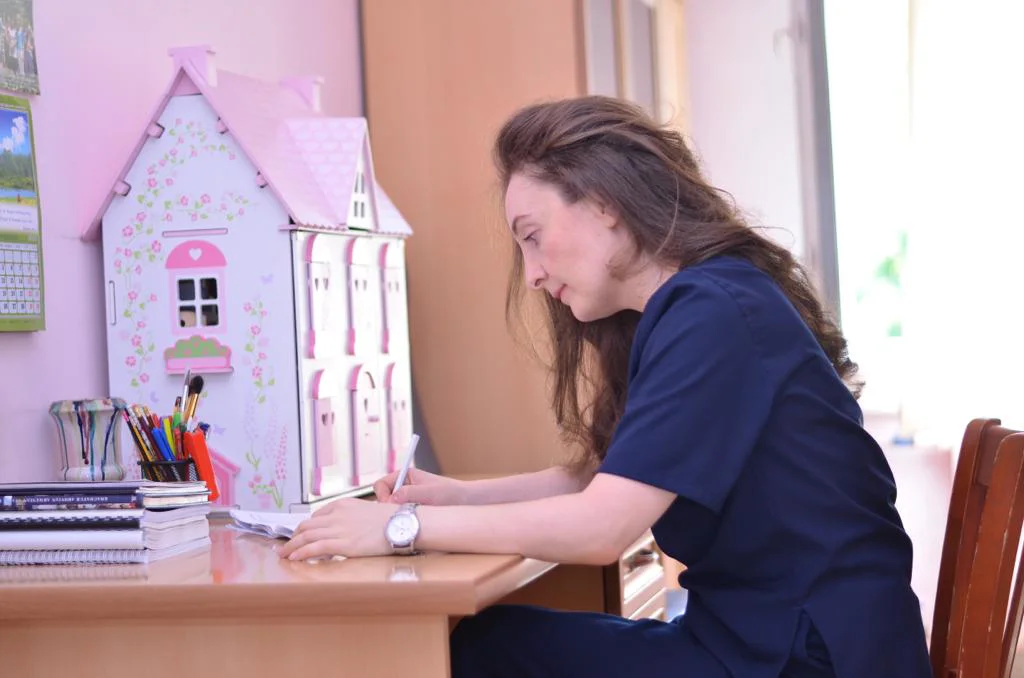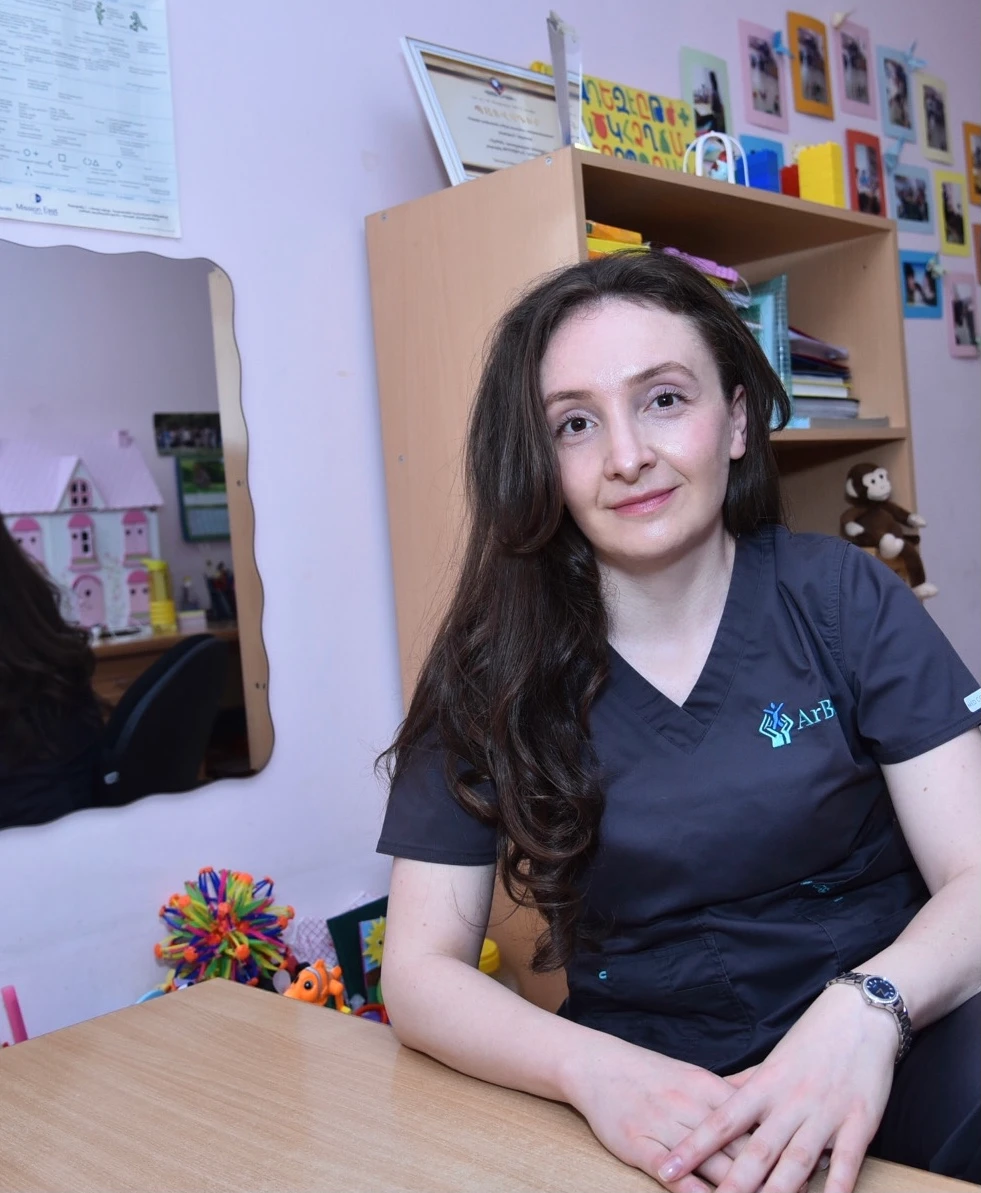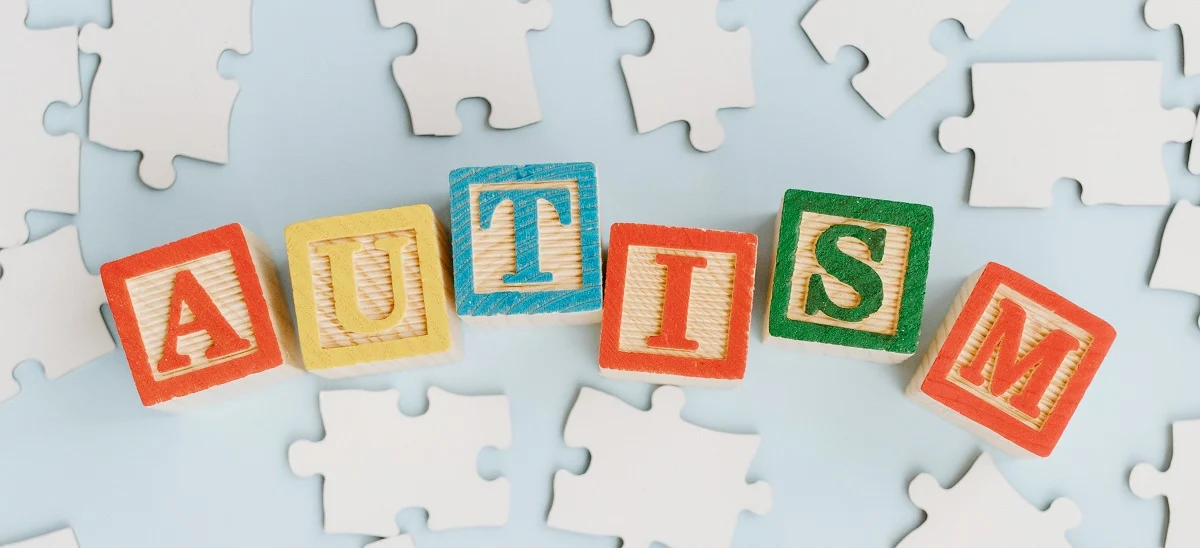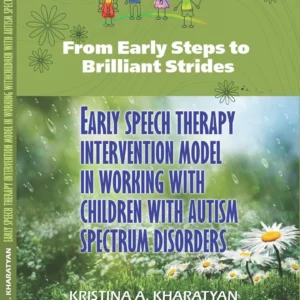Mastering of the sounds of the language proceeds in different ways in different children. Some people gradually overcome language problems, while others overcome on their own.
Aysor.am had an interview over this topic with Kristina Kharatyan, a speech therapist at Arbes (Institute for Children and Adolescents).
– When do I need to worry about the shortcomings of speech in children?
– In the process of the child’s normal communication and speech development, it is important that all components of oral speech would be developed, including sound of speech, since a clear speech of a child is one of the most important prerequisites for both normal communicational development and full-fledged personality formation.
Very often, parents are aware of this peculiarity, but their willingness to refer to a relevant specialist can be extremely different. In some cases, parents try to fix problems with the child’s speech, as soon as, possible and turn to a speech therapist at a very onset, without taking into account the stage of the child’s speech development. For example, there can be a case where parents refer to the speech therapist for correcting their 3-year-old child’s pronouncing of “R” sound, not considering other more important elements like incomprehensible and poor speech of their child; whereby, their referral to a specialist can be postponed until 6 years of age, which is already a lost time. Therefore, for a proper approach, it is necessary to follow the ontogenetic formation of the Armenian sound step by step.

– When does the formation of the phonetic system of the language end, after which it might be necessary to consult a specialist?
– According to the research standards adopted so far, sound formation begins at the age of 1 year and ends at the age of 6-6. 5 years. It should be noted that the articulation of vowel sounds occurs at the initial stages, then lip-like sounds are formed, then lip-to-teeth sounds and thus, by the age of 4-5, the child is ready to clearly distinguish all sounds, phonemic perception is formed, and he is able to pronounce almost all sounds clearly, summarizing the series with the formation of more complex pronunciation sounds, the formation of which can occur up to 6.5 years.
– Usually, what problems are mainly found among Armenian children, what factors can they be caused by?
-Today, new technologies have created absolutely different world for human being. Socio-cultural and educational new circumstances, daily increase in the number of new technologies, epidemic situations (when the presence of protective masks completely covers the articulatory apparatus of an adult), and the child’s circle of communication with peers, (which is limited) all play role. According to our practice gathered during the last years, there are obvious factors, such as bilingualism, that have negatively affected normal speech development of the child, thus influencing on the growing percentage of children with delayed speech.
From neuropsychological point of view, today’s child can often become irritable and more vulnerable, which is reflected on the newly formed speech, and might lead, for instance, to stuttering in some children.
– Can hereditary factors play any role here?
– Yes, in the context of formation of the sound of a child with normal development, the role of heredity should be noted. Developmental difficulties can be transmitted from generation to generation but can be overcome by competent speech therapy intervention at the right time:

– What advice can you give to parents to try to prevent problems associated with the development of the speech process in children?
– As a professional advice, it can be noted that the prevention of further harm to children’s health (from the point of view of using the latest technologies) is possible with the organization of the right pedagogical approaches, having in mind that the brain which developing up to 3, absolutely does not need any digital devices.
Guided by the advice of neurophysiologists and doctors, it can be stated that children over 3 years old can only be given gadgets for a strictly limited time, and not make them a “teacher-nanny” for children. In addition, you need to encourage real life situations, such as playing in the yard, playing with ordinary toys, walking with relatives, cooking with mom, playing sports, drawing, music and other performing activities. It would be more efficient if parents will communicate more with their child, discuss books and what surrounds him, what he dreams or thinks about.
In addition to these, it is encouraged to participate in such activities (e.g., application work, joint cooking of pies, etc.) where all five senses; tactile, visual, auditory, olfactory and gustatory would be involved.
Today, you can always find any useful game or activity that stimulates normal development of communication and speech for a child, who is getting bored.
Original source here.


